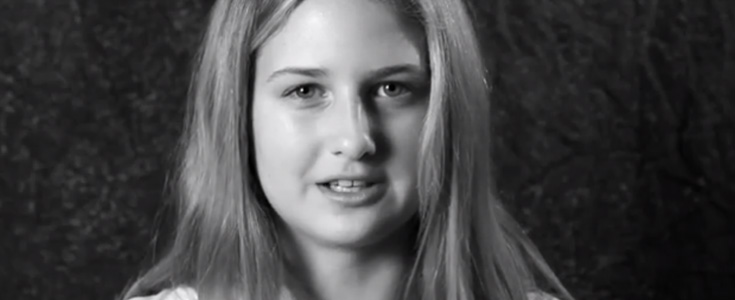
Person-centred care, everyone in health care believes it is important - regardless of the capacity in which they work. For most of us, it is about the people. That is why we chose a career in health care in the first place. Making a difference in someone's life is what we find most rewarding.
But what is person-centred care really? Approaches go by many names . . . integrated care, interprofessional collaboration, interdisciplinary teams, interprofessional practice, or collaborative practice. In the Winnipeg Health Region we have chose to call it - Collaborative Care. By that we mean: Collaborative Care is when health providers from various professions work together - and include people and their families in making decision about their health - to provide high quality care.
Related links
Are you fluent in Collaborative Care?
Myths about Collaborative Care
Overstay from a nursing perspective
Delivering collaborative foot care for people with diabetes
Hand hygiene campaign aims to better protect patients, decrease outbreaks
Right care, right place, right time
So what does collaborative care look like and feel like for those who are receiving care and for those health professionals who are delivering it? Many people think collaborating is teamwork, but it's more than that . . . just because we have a team, does not mean we are collaborative.
So how do you know the difference? How do you know when you're truly delivering Collaborative Care as a team? It's a question that Susan Bowman, Kathleen Klaasen and Paul Komenda set out to determine with the EXTRA project (the executive training for healthcare improvement program through the Canadian Foundation for HealthCare Improvement).
Over the past two years, the trio have scoured the available literature to determine what elements make up a high-functioning team. They've surveyed health care providers. They've looked at the six core competencies (person-centered care, role clarification, team functioning, collaborative leadership, interprofessional communication and interprofessional conflict resolution - read more about them here - identified by the Canadian Interprofessional Health Collaborative. And ultimately, they've identified eight indicators of a high-functioning, collaborative team. You can read more about them here.
Historically we have not spelled out how we expect health care teams to function. In my many roles as a nurse, I have had a chance to work on teams that collaborated well . . . and teams that didn't. What made the difference?
Let me share examples of two of these teams. My job on both teams was the same but the way that job was accomplished was very different. Both teams were focused on discharge planning and were made of up health care providers from multiple disciplines - very talented, skilled and committed people. What was the difference? The level of trust, role clarity, communication and the focus on shared goals.
My best example of a collaborative team, was a very small team comprised of an occupational therapist, a social worker and myself as a home care referral nurse. We worked closely together on a number of teams that also included other health disciplines but we became the core group to address challenging discharge situations
There was lots of overlap in our roles but because we understood each other's roles and responsibilities and scope of practice, we didn't redo work. We had an enormous level of trust and realized that we couldn't do our best work as a team if we didn't rely on each other.
We were all willing to work hard, got things done together and negotiated work tasks so we could deliver the best care possible. We had an unofficial shared vision, commitment, understanding and ultimately were willing to work together to meet the high expectations people had for our busy unit.
We got very good at achieving consensus on goals and timeframes. We probably were not as deliberate at including the person and the family in the collaboration as we could have been but in some memorable cases we certainly did and those remain some of the most satisfying memories of my career.
One person in particular wanted us to create a plan for her to be at home. It was a high risk plan but we worked together to develop a home care plan and arrange for additional supports so she could achieve her goal. Her goal became the team's goal.
It was a very complicated situation that required a lot of planning and coordination but we succeeded in getting her home. As luck would have it, she was only home for an hour when there was a call from the home care staff saying that they could not transfer her because the sling was missing. A very simple thing but crucial to her safe care at home. So what did we do? We got in the car, delivered the sling, helped with that first transfer and left satisfied that we had done everything we could to help her achieve her goal.
The team that didn't collaborate well didn't share this focus and trust. The team had difficulty agreeing to shared goals and the level of commitment to honouring these goals was variable. The goals of the person and the family were sidelined by the team's disagreement.
Having varying professional agendas created disagreement and conflict between team members and ultimately frustrated the person we were caring for. We couldn't agree on an acceptable level of risk for discharge plan even when that was the person's goal. We didn't always respect each other's perspectives or the person's. We were definitely not delivering Collaborative Care.
The conflict among team members was difficult to watch and exhausting because of the additional stress it created. Disrespectful communication and tension became the norm. It created an unpleasant working environment and the best interests of the people and their families were not always the top priority.
Unfortunately, stories like these are not uncommon. That's why it's important to emphasize the importance of Collaborative Care and support health professionals and teams with resources and supports. Collaborative Care improves our health system - not only through improved health outcomes, but also through healthier, more satisfying work environments for our staff.
My experience has taught me that trust is essential when delivering Collaborative Care. We need to trust the knowledge, skill and expertise of our colleagues and team-mates. This trust means challenging some of our own professional beliefs and truly collaborating in care and service delivery
I invite you to think about your role in delivering Collaborative Care. Do you know your scope of practice within your work environment? Are you working to your full scope? Do you understand your role in the context of other team members? Do you trust the work done by others? What are you doing to improve communication and teamwork? Take one small step to improve the way your team is delivering care, collaboratively. Drop me a line about your successes and challenges along the way . . . I'd love to hear how you're doing: [email protected].
